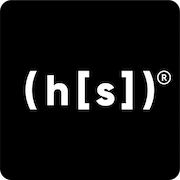Looking for the best robotic process automation (RPA) software for your business? Our comprehensive buyer's guide has got you covered. Discover top-rated solutions and make an informed decision today.
In today's fast-paced business landscape, companies must maintain efficiency, profitability, and accuracy to stay ahead of the competition.
Long hours of manual data entry, repetitive tasks, and human error can hinder growth, productivity, and profitability. Fortunately, technological advancements, such as robotic process automation (RPA), can help businesses automate routine tasks, reduce human error, and free up employees' time to focus on more strategic initiatives. The adoption of RPA technology can be so impactful across an organization that Gartner predicts it will reduce operational costs by 30% by 2024.
RPA can provide numerous benefits to a business, from increased accuracy to significant cost savings. In this buyer's guide, we'll explore the essential features and factors to consider when selecting the right RPA solution for your organization.
What is robotic process automation (RPA) software?
RPA automates business processes by mimicking human actions. This means that RPA software can interact with applications, systems and data just like a human would, but in a faster and more accurate way. No wonder RPA has become increasingly popular in recent years, with more businesses implementing it in their operations.
RPA software has a wide range of use cases across various industries. Here are some of the most common ones:
- Data entry and migration: RPA can be used to handle the tedious task of data entry, including data migration from one system to another.
- Invoice processing: It can streamline the processing of invoices by extracting data from invoices, verifying the data, and updating the company’s accounting system.
- Customer service: It can be used to automate customer service tasks such as responding to emails, processing refund requests, and updating customer data.
- Human resources: It can be used in the HR department to automate tasks such as resume screening, employee onboarding, and benefits administration.
- Finance and accounting: It can be used to automate financial processes such as closing the books, financial reporting, and account reconciliations.
- Supply chain management: It can also be used to automate supply chain processes such as inventory management, order processing, and shipment tracking.
It can also be used by various types of companies including:
- Banking and finance to automate processes such as loan processing, account opening, and fraud detection.
- Healthcare where it can automate processes such as claims processing, appointment scheduling, and patient data management.
- Retail to automate processes such as inventory management, order processing, and pricing updates.
- Manufacturing to automate processes such as inventory management, supply chain management, and quality assurance.
- Insurance where it can automate processes such as claims processing, underwriting, and policy administration.
RPA software is a powerful tool that can help businesses automate their operations and improve efficiency. From data entry to back-office operations, RPA has a wide range of use cases across various industries.
Companies from financial services to healthcare and manufacturing are leveraging RPA to streamline their processes and reduce costs. As your business grows, consider implementing RPA software to take your operations to the next level.
The benefits of robotic process automation software
Business process automation software is revolutionizing the way businesses operate. Simply put, it enables organizations to automate repetitive and mundane assignments using software robots, freeing up employees to focus on more complex tasks and creative endeavors.
In today's fast-paced business world, RPA can provide numerous benefits, including:
Increased efficiency
It can significantly reduce the time-consuming and error-prone nature of manual tasks. The use of software robots ensures that processes are carried out quickly and accurately, leading to increased efficiency and productivity.
Cost savings
By automating tasks that would otherwise require human intervention, businesses can save on labor costs and free up resources for areas that require more investment.
Improved customer satisfaction
RPA can reduce turnaround times, process requests faster, and improve accuracy levels in processes such as invoicing and customer service, all of which help to drive higher levels of customer satisfaction.
Better data quality
Automation reduces the risk of errors that can arise from manual data entry, leading to data that is more accurate, consistent, and reliable.
Enhanced analytical capabilities
With RPA, businesses can gather and analyze data in real-time, allowing them to make better-informed decisions that can impact overall business efficiency.
Improved compliance
RPA can also help organizations comply with regulations and policies by automating tasks that require stringent adherence to standards and protocols.
The benefits of RPA software are vast and varied, making it an essential tool for businesses of all sizes and industries. By embracing this technology, companies can elevate their operations, save significant time and money, and enable their employees to focus on activities that require individual attention and creativity.
10 key features of robotic process automation software
RPA has revolutionized the way businesses operate by automating repetitive tasks and streamlining workflows. Its advanced technology provides organizations with a range of benefits, making it a popular choice in today's fast-paced business world. If you're looking to implement RPA in your workforce, here are 10 key features you should look out for:
-
User-friendly interface
RPA software is designed to have a user-friendly interface that doesn't require coding skills, allowing business users to create automation workflows without the need for technical expertise.
-
Scalability
The ability to scale up or down quickly is a key feature of RPA software, enabling businesses to easily adjust to changing demands.
-
Flexibility
It can also be easily adapted to fit the needs of different departments or organizations, allowing users to customize automation workflows as per their requirements.
-
Compatibility
RPA software can easily integrate with other systems and applications such as ERP, CRM, and HRMS. This means businesses can use their existing infrastructure and software without the need for costly upgrades.
-
Accuracy
It's highly accurate and can perform repetitive tasks with the same precision as a human worker, minimizing the risk of errors and improving task completion rates.
-
Auditability
Robotic process automation solutions can track and record all automation workflows, providing organizations with a clear audit trail of all activity.
-
Cost-effective
It can reduce operational costs by automating repetitive tasks and processes, optimizing workforce efficiency, and freeing up people resources to focus on more complex and value-adding work.
-
Time-saving
RPA tools can save valuable time by automating laborious and repetitive manual processes, allowing staff to focus on more important tasks.
-
Security
It ensures the security of sensitive business information through encryption and access control, minimizing the risk of data breaches.
-
Analytics
RPA software can provide detailed analytics and reports on process performance, allowing businesses to identify areas for further optimization and improvement.
RPA has become an indispensable tool for businesses looking to improve their operational efficiency, reduce costs, and optimize their workforce. The features listed above make it clear why RPA has become a staple in today's business world.
Important considerations when purchasing robotic process automation software
Businesses are increasingly turning to robotic process automation solutions to improve processing times, increase operational efficiency, and reduce costs. Given the importance of RPA in today's business landscape, it's essential that businesses carefully consider several factors before purchasing an RPA solution. Below, we have outlined some key factors that businesses should keep in mind.
Scalability
When looking to automate business processes, it's crucial to choose an RPA solution that can grow with the business. Therefore, you should consider the scalability of the RPA software, including the number of processes that can be automated and the ease with which new processes can be added.
Integration
It should be easy to integrate with other existing business systems, such as Customer Relationship Management (CRM) software, Enterprise Resource Planning (ERP) software, and Document Management Systems (DMS). This integration will enable RPA to work seamlessly with the other business systems and provide a more comprehensive automation solution.
Security
Your RPA solution may access sensitive data during automation, so it's crucial to ensure that it has robust security features. This includes features such as secure user authentication and access controls, encrypted communications, and auditable logs.
Analytics and reporting
The ability to generate customized analytics and reports is essential when adopting RPA. It enables businesses to monitor and measure the performance of the automation solution, and make necessary adjustments or improvements
Ease of use
Your RPA tool should be easy to use, deploy, and manage. Even non-technical users should be able to configure and manage it without relying too heavily on IT staff or external consultants.
Customer support and training
Does the vendor provide comprehensive customer support services including training, documentation, and ongoing support? This will enable the business to realize the full potential of the RPA software and avoid any potential problems or issues.
It's important to consider several factors when purchasing RPA software, including scalability, security, and customer support. By evaluating your requirements against these factors, businesses can make an informed decision that best meets their needs and objectives.
Software trends for robotic process automation software
RPA software is a growing industry that is set to dominate businesses in the coming years. This technology has the potential to revolutionize the way we work and streamline processes, making routine tasks easier and more efficient. In this section, we'll explore the biggest upcoming trends for RPA software in 2024 and beyond.
-
Intelligent automation
With the current artificial intelligence (AI) trends, we can expect RPA software to become even more intelligent. This means that robotic process automation solutions will be able to learn from their experiences, adapt to new information, and make more accurate predictions. As AI and machine learning (ML) become more advanced, RPA solutions will be able to automate more complex and sophisticated tasks. This intelligent automation will reduce the need for human intervention and improve the overall efficiency of previously manual processes.
-
Increased adoption of RPA
RPA software is already being widely adopted by businesses across various sectors, and this trend is set to continue in 2024 and beyond. As the benefits of RPA software become more widely understood, more companies will implement it into their business operations. This will lead to increased demand for RPA and a wider variety of solutions on offer.
-
Focus on security and compliance
As businesses rely more heavily on robotic process automation solutions, the issue of security and compliance becomes more important. In 2024 and beyond, we can expect businesses to place greater emphasis on RPA solutions that are secure and compliant with regulations. This will drive innovation in the RPA industry as developers work to create more secure and compliant software solutions.
-
Collaborative RPA
Rather than replacing human roles, RPA will increasingly be used to collaborate with humans, rather than to replace them entirely. This collaborative approach will improve the overall efficiency of processes and also make it easier for businesses to upskill their employees.
-
Cloud-based RPA
Cloud-based RPA solutions are becoming increasingly popular due to their flexibility, scalability, and cost-effectiveness. As a result, we can expect more businesses to adopt cloud-based robotic process automation solutions. This will lead to increased competition in the market, which will drive innovation and lead to the development of more advanced cloud-based RPA solutions.
The RPA software industry is set to continue its rapid growth and development in 2024 and beyond. The trends outlined above are just a few of the key areas that businesses and developers will be focusing on. With continued innovation and investment, we can expect RPA solutions to become even more intelligent, efficient, and valuable to businesses in the years to come.








